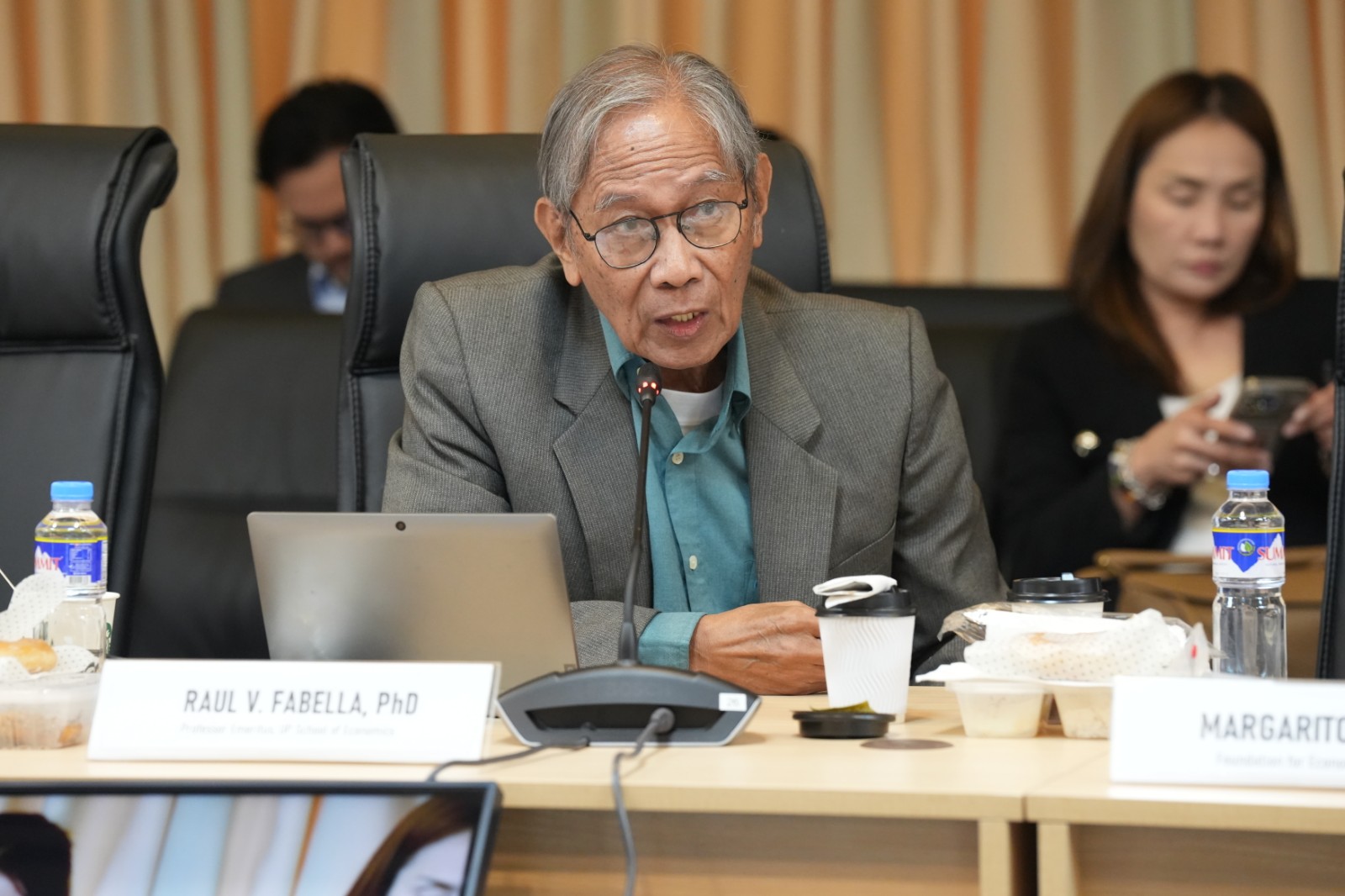Economic Cha-cha vital to improve PH investment climate, says national scientist
At A Glance
- National scientist and economist Raul Fabella has argued that amending the economic provisions of the 1987 Constitution can "significantly enhance" the country's investment climate.
 National scientist and economist Raul Fabella during the roundtable forum at the House of Representatives (PPAB)
National scientist and economist Raul Fabella during the roundtable forum at the House of Representatives (PPAB)
National scientist and economist Raul Fabella has argued that amending the economic provisions of the 1987 Constitution can “significantly enhance” the country’s investment climate.
In a roundtable discussion on Wednesday, Feb. 14, Fabella said the Philippines’ investment rate stands as the lowest among members of the Association of Southeast Asian Nations (ASEAN), at 22.4 percent.
This is in stark contrast to neighboring Thailand, Indonesia, and Vietnam which boast higher investment rates.
This disparity, according to Fabella, highlights the Philippines' preference for consumption over investment, resulting in a low savings rate and an "anti-investment ecology".
“All economic progress boils down to investment. Countries that invest less will over time eat the dust of countries that invest more,” he said.
As a crucial step to lift the country from the bottom of the investment ladder, lawmakers, leading policymakers, and even President Marcos himself have espoused the necessity of amending the economic provisions that are deemed restrictive within the Constitution through a Charter change (Cha-cha).
These amendments are aimed at liberalizing key sectors by allowing the influx of more foreign direct investments (FDIs) and creating an economic climate conducive to growth and innovation.
Fabella, a professor at the University of the Philippines (UP) School of Economics, labeled high power costs, bureaucratic inefficiency, corruption, and infrastructural lag as the main challenges for the country’s economy.
To address these concerns, he stressed the importance of lowering power costs, encouraging investments in agriculture by adjusting land ownership ceilings, and redirecting financial strategies towards consolidating small farms.
Fabella noted that the business community, civil society, and the public should welcome these transformative initiatives with open arms.
“Through a concerted effort the Philippines can foster a pro-investment ecology, ensuring sustainable economic growth, job creation, and technological advancement,” he stressed.